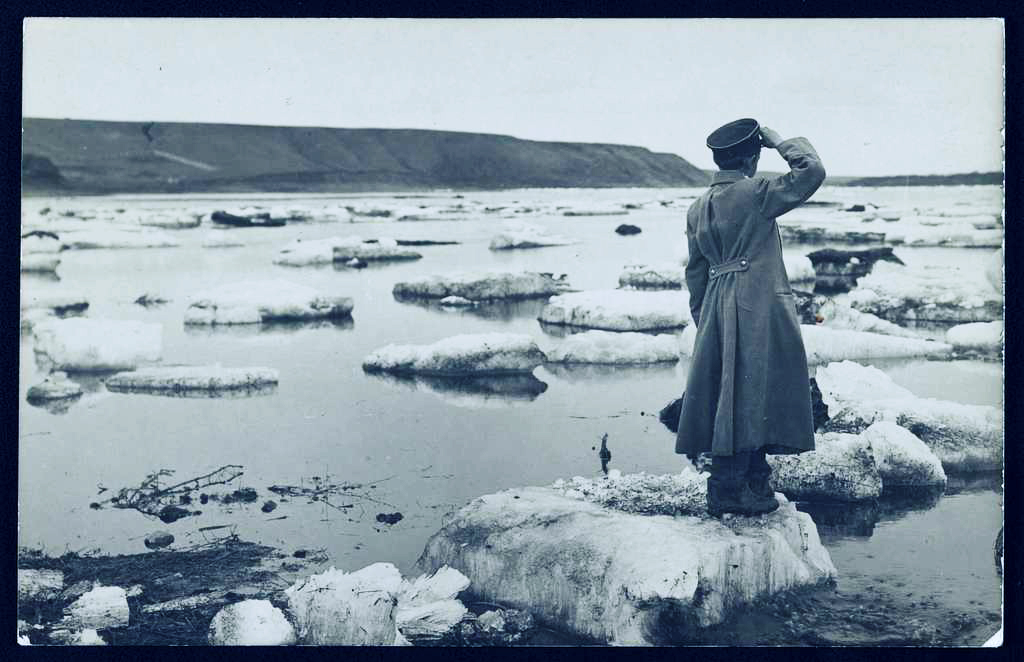Essay by Esperanza Cintrón
Are We Ever Done?

When we heard that a cousin who’d been in a coma for two months had died, my aunt Lola said it was probably for the best. The cousin, who was in her sixties, struggled as she raised her children in poverty and spent her “golden years” babysitting a brood of grandchildren. Lola, whose name has been changed to protect the guilty, said pulling the plug was a blessing that saved my cousin from more of the same drudgery and hard times. Lola, who is a spry healthy seventy and could easily pass for somewhere in her fifties, said she understood because she, too, was prepared to die.
Having done all she wanted in this life, my aunt claimed she had nothing to look forward to. Besides her jaunts to the casino that is just across the river in Windsor, Ontario, her time was spent “helping” her own children and grandchildren in Detroit who needed ferrying to school and work—or doling money out to them to repair cars, pay overdue rent and utility bills, or solve emergencies.
Lola was a beauty in her day. Then, as now, she was largely concerned with the external. She still colors her hair and moisturizes her skin religiously, never goes out without makeup or without her hair properly coiffured, and wears the current fashions purchased at full price. These are not bad things. In fact, they are things for which she should be commended. Appearance is important, and how others perceive us is inextricably linked to how we’re treated.
But in her day—and now—she might well have starred in her own version of Mean Girls. She makes fun of those whose excess weight reveals they haven’t aged as well as she has, the unfortunate who doesn’t have the finances or genetic disposition to maintain a set of pearly whites, or the woman who needs to invest in a better bra because she’s too old for that cheap bra that’s giving her no support.
In short, Lola has internalized the ideals of our youth-obsessed, perfection-oriented culture, which dismisses anyone past breeding age as obsolete. According to this reasoning, our elders are just marking time, having gone from useful to useless. Aging is unfashionable; it is a reminder that the joy-joy days of lithe bodies and do-overs will end. So, when my aunt looks in the mirror and sees her slightly sagging neck, the bit of pudge around her middle, and comes to the realization that getting the guy is no longer probable, she’s ready to chuck it in.
But her comments about having done it all indicate that her self-worth has been severely diminished. After her husband died and she retired from her job in marketing at AT&T, she sold the family house and downsized to a one-bedroom apartment. For spice, she relies on her older sister and me. She and her sister go to the casino, where they dine and play the slots. She and I attend local plays and music festivals or visit museums. Lola says she would not have done these artsy things in her former life and has only succumbed because I like them and she was bored.
A couple of years ago, I began urging her to consider volunteering, saying it would expose her to new people and interests, but she dismissed my suggestion. My aunt said I probably don’t feel the way she does about aging and death because I still have things I want to accomplish. I’m a writer, but it wasn’t until I became an empty nester about ten years ago and could muster the time and courage that I amped up my efforts.
“You’re always working on something,” she said, “and people like you are into doing stuff for free.”
“Like me?”
“Creative types.”
“No,” I said. “We don’t. We like getting paid for our work, too.”
“But you’re always writing stuff that you don’t get paid for.”
“Yeah,” I said somewhat indignantly. “It’s called honing your craft.”
“Well, you do it because you enjoy it, right?”
“Sometimes, but not all the time. Sometimes, it just has to be done.”
I wanted to say we are all creative types. You don’t live this long without being creative. And sometimes, you just have to do things and not get stuck on the idea of compensation. You hope that it will have value, monetary and otherwise, but the doing is the motivation and the purpose. I wanted to say one of the problems with growing up under capitalism is that everything has to have a monetary value in order for it to be considered worthy of time and effort. Everything has to be assessed and valued based on perceived demand.
But I didn’t say those things, because I didn’t want to be summarily dismissed as a radical with ideas too extreme for her to consider.

My aunt’s attitudes reminded me of the cultural practice of senicide, abandoning the aging to die. Most everyone has heard of the Inuit practice of leaving elderly relatives to die on ice floes. Several sources say the last known case was in 1939, but as travel writer Justin Nobel notes in “Growing Old with the Inuit,” the outmoded cultural practice (as well as the ritual shooting or stabbing of the elderly) was usually consensual and most often happened in times of hardship.
It’s certainly not unique to the Inuit. The Wikipedia entry for senicide provides a list “by culture” that includes Norse, Greek, and Roman tales and practices. Ancient Japanese tales describe carrying an old relative up a mountain and leaving him or her to die. A 2013 Los Angeles Times story reported that thalaikoothal, the ritual “mercy killing” of elderly family members by poisoning or forcing them to swallow something that causes them to choke, is still practiced in the Indian state of Tamil Nadu.
Other cultures revere their aging members and believe that experience endows them with wisdom. Ours, sadly, is not one of them, but I remember being taught to respect the old men and women who sat on their porches in Detroit’s North End and watched us while we played. They were often in their eighties, but if one of them pointed a crooked finger at you and said, “Come here, chile,” you’d better stop what you were doing and go see what they wanted. If you didn’t, your parents were sure to hear of it and see that you repented.
The tradition of honoring elders is clear in the Chinese axiom: If you have an old person in the family, you have a treasure. Similarly, many Native American legends advise reverence and respect for elders. In one Ojibwe legend, the young hero Iyash has to pass a strange test before he can earn the advice of a wise “Old Lady Fox.” In “The Flying Canoe,” a Passamaquoddy tale, an infirm old woman gives magical advice to a young man who was kind to her.
Parables aside, old values, good and bad, are dying. But to paraphrase the philosopher Jorge Santayana, those who dismiss the past are doomed to repeat its mistakes. Fortunately, some of us are still viable, demanding our due and dispensing our magical advice.
My aunt says her whole “creative types like working for free” comment was meant as a compliment. But she likes not having commitments. Volunteering at a museum or serving as an usher at a local theater doesn’t interest her. I’m still working on her, because she’s capable of so much more. Lola likes to sew, an evaporating skill among our youth, and she’s quite good at it. Maybe she could teach a class at a community center. They might even pay her something.
And yet, if she wants to play slots and wander around music festivals, that’s okay, too. Because Lola is right. My cousin who died never seemed to own her life, never grew beyond trying to fulfill the demands of others. Even when she should have been treasured, she was still mired in the expected. What might she have done if she’d had the courage? What might Lola still do?
Publishing Information
- “Notes on Eskimo Patterns of Suicide” by Alexander H. Leighton, and Charles C. Hughes, Journal of Anthropological Research, Volume 11 (4), Winter 1955.
- “Growing Old with the Inuit” by Justin Nobel, Nowhere Magazine, 2015.
- “In Southern India, Relatives Sometimes Quietly Kill Their Elders” by Mark Magnier, Los Angeles Times, January 15, 2013.
- “Native American Stories About Respect for Elders,” edited by Orrin Lewis and Laura Reddish, Native Languages of the Americas, 1998-2015.
Art Information
- “Soldier Saluting on Iceberg, Enisei River, Siberia” © Library of Congress; public domain.
- “Iceberg” © Kyle Mortara; Creative Commons license.
 Esperanza Cintrón is the author of Shades: Detroit Love Stories, a collection of interconnected short stories published by Wayne State Press (2019) and three books of poetry: Visions of a Post-Apocalyptic Sunrise, the 2013 Naomi Long Madgett Award winner What Keeps Me Sane, and Chocolate City Latina. Her short stories, essays, and poetry appear in a number of journals and anthologies. She currently teaches writing and film at a college in Detroit.
Esperanza Cintrón is the author of Shades: Detroit Love Stories, a collection of interconnected short stories published by Wayne State Press (2019) and three books of poetry: Visions of a Post-Apocalyptic Sunrise, the 2013 Naomi Long Madgett Award winner What Keeps Me Sane, and Chocolate City Latina. Her short stories, essays, and poetry appear in a number of journals and anthologies. She currently teaches writing and film at a college in Detroit.
For more information, see her author websites Esperanza Cintrón and Alegra Verde or follow her on Twitter esperanzacintron@alegraverde.
